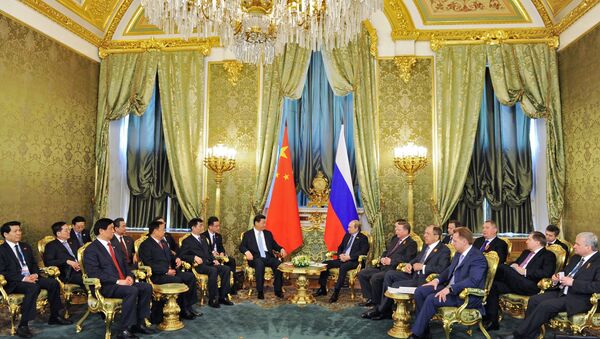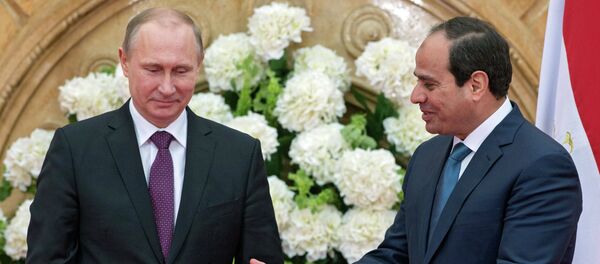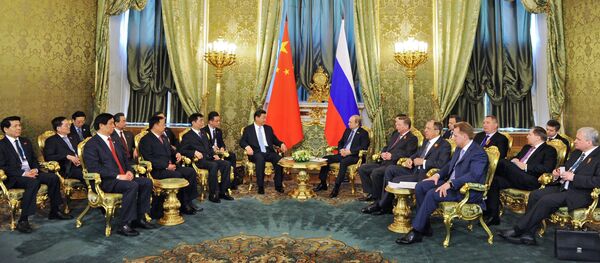In November 2014 the New York based think tank EurasiaNet.org predicted that Beijing's Silk Road project aimed at China's further economic expansion would cast a shadow on Russia's grand plan for the Eurasian Economic Union, claiming that "the simmering economic rivalry in Central Asia could create a quandary for bilateral relations."
"Russia, which is busy promoting a more protectionist economic solution for the region in the form of the Eurasian Economic Union (EEU), may not share Beijing's enthusiasm for the Silk Road initiative," the think tank stated.
Simultaneously, another prominent American think tank, the Central Asia-Caucasus Institute (CACI), also expressed its doubts regarding the possibility of the co-existence of the Russia-led EEU and China's Silk Road on the Eurasian continent.
According to CACI's forecast, China's initiative was expected to undermine Russia's plans for regional integration. It would also put into question the future of Moscow's "clumsy" Eurasian Union, CACI's analysts noted with a touch of hubris.
In a joint statement inked last month by Russian President Vladimir Putin and President of the People's Republic of China Xi Jinping, the two leaders pledged to set up mechanisms for the integration of the EEU and the Silk Road Economic Belt.
"The integration of the Eurasian Economic Union and Silk Road projects means reaching a new level of partnership and actually implies a common economic space on the continent," Vladimir Putin highlighted after the summit with Chinese leader Xi Jinping.
"Moscow and Beijing declared a goal to coordinate the two projects in order to build a "common economic space" in Eurasia, including a Free Trade Agreement between the EEU and China. Though still equivocal in language, the document signifies major departure from the previous collision course," the expert wrote in his article published by The Diplomat.
According to the expert if Moscow and Beijing continue to develop this course, "the change will be significant" and China will become, "with Russia's support," a truly "Eurasian power."
Commenting on the initiative, deputy director of the Far East Institute of the Russian Academy of Sciences Sergey Luzyanin stressed that the new Sino-Russian plan will "establish a common and integrated space in Eurasia" resulting in the creation of a "Eurasian heartland," Xinhua reported.
At the same time "the docking project could help combine capital coming from China, Russia and other countries and thus support the Russian-Kazakh Eurasian Bank, foster the SCO development bank and reinforce the Asian Infrastructure Investment Bank," Luzyanin emphasized.
Mr. Luzyanin stressed that the integration of the EEU and the Silk Road Economic Belt would be undoubtedly a mutually beneficial project that will boost the development of the Eurasian heartland, triggering "the real free flow" of goods, services and labor within the continent.
"Russia and China are working together to build a new peaceful heartland and center of Eurasia, which could become a promising global economic center just like the Asia-Pacific region," Luzyanin concluded.





